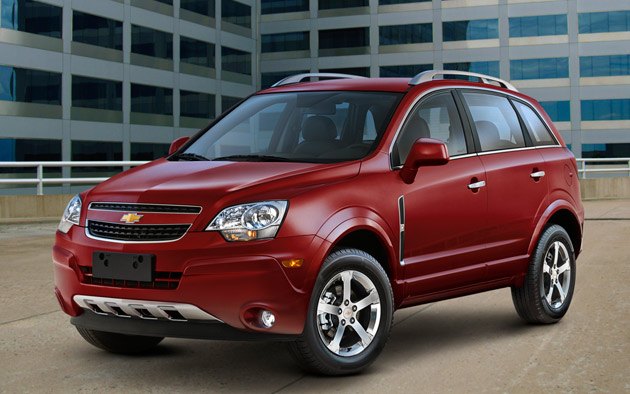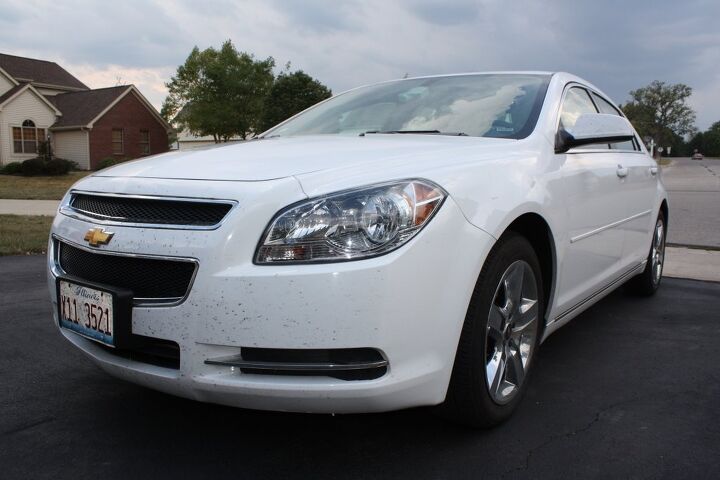#FleetSales
Impala Limited Fleet Special Lives On To At Least 2016, Keeps Oshawa Open
While the all new 2014 Impala is impressing reviewers, like Consumer Reports calling it this year’s highest scoring sedan, General Motors has decided to keep the outgoing Impala as a low cost option for fleet customers until 2016. According to Automotive News, the automaker had originally planned to keep the old Impala, branded the Impala Limited, in production for rental operators as well as government and corporate fleet customers, into next year. “The Impala Limited has done extremely well. Our fleet customers know the car and like it,” a GM spokesman said last week. “It’s a business opportunity that we want to continue to fulfill.”
The continued production of the Impala Limited means that the Oshawa Car Assembly plant in Ontario will remain open until at least 2016.
The Truth About Honda's Fleet Sales
TTAC has a long tradition of digging deep into manufacturer sales data, frequently focusing on retail versus fleet sales. It’s become commonly accepted that high fleet percentages are a sign of weakness in product lines, at least as far as retail consumer preference goes. The traditionally low fleet percentages of Japanese brands have been singled out as evidence of those companies’ ability to attract crucial retail dollars, or at least their superiority in matching production to demand. And they were right. For many years, Toyota and Honda in particular could count on strong retail sales of premium-priced products in a way that the Big 3 couldn’t. Changing trends in the American vehicle market are undermining this model, though.
July Fleet Sales: Detroit Down, Asians Up
After a continuing effort to reduce reliance on fleet sales in the U.S. market, all three domestic American automakers reported declining fleet sales in July while they were up significantly at Nissan, Toyota and Hyundai-Kia. Chrysler fleet sales were down 36 percent from the same period last year, Ford was down 9 percent and GM down 6 percent. In terms of units, the domestic brands’ fleet sales were down 15,300 vehicle. Meanwhile, sales to fleets were up 34% at Toyota, up 43% at Hyundai-Kia Automotive and a whopping 87 percent at Nissan’s North American operations.
Fleet-Only Cars: A Great Idea
One of the most interesting things to come out of the recent Chevy Impala launch – aside from the fact that GM thinks it can sell the thing for $40,000 – is that the current, unloved Impala will live on as a fleet-only special called the “Chevrolet Impala Limited.” To that, I say: great idea.
I’ve been a proponent of fleet-only cars ever since the 1997-2003 Chevrolet Malibu was rebranded the Chevrolet Classic, a name which would’ve been appropriate when it debuted. In fact, I think there should be even more fleet-only cars – an idea that’s unpopular in the automotive industry, but highly praised between my ears. Allow me to explain.
W-Body Impala Gets A One-Year Stay Of Execution
The W-Body Chevrolet Impala, so beloved by the horribly biased, anti-Detroit, anti-GM staff and readership of TTAC, will live on for one more year, as a fleet vehicle dubbed the “Impala Limited”.
GM Regains Its Crown As Government Car Of Choice
GM is once again the top seller with government agencies, after losing that title to Ford over the past few years. A Bloomberg report based on a Freedom of Information Act request shows that GM sold 19,404 vehicles to the federal government in the fiscal year that ended September 30th, up 3.5 percent. Sales of Fords were down by 43 percent, to 10,734 vehicles.
Were You Aware?: Half Of All Large Car Sales Go To Fleets
Since ruling Americas roads in the heyday of the US auto industry, sales of large sedans (as a percentage of the overall market) have been in a decades-long slump. More recently, as SUVs have merged with large cars to form the modern crossover, the decline in large car sales has picked up speed. And there’s reason to expect that trend to continue, as a closer look at the data shows that market support for large sedans has eroded farther than even these numbers might suggest. One of TTAC’s well-placed sources reveals that the “large car” segment (admittedly, a notoriously difficult segment to accurately capture) is running at 50% fleet sales, year-to-date through October. That’s right, every second large sedan sold in this country end up as a fleet vehicle, many of them daily rentals.
Who Ruled The Rental Fleets In 2010?
One of the questions that came up in yesterday’s post, The Truth About The Ten Best-Selling Sedans Of 2010, was how to interpret a high percentage of fleet sales. After all, “fleet sales” could describe a huge variety of sales to diverse buyers at widely varying price (and profit) points. Rental fleet sales are widely seen as being far worse than other types of sales, which is why the resale value trackers at Automotive Lease Guide keep such a close eye on what they call “Rental Fleet Penetration.” In its latest newsletter, ALG notes
ALG tracks several key metrics that impact residual values and brand health. Of these metrics, rental fleet penetration (RFP), which ALG measures as the total number of vehicles sold into rental fleet channels divided by total sales, has been found to have an impact on both residual performance and perception of quality… As a general rule, ALG recommends RFP levels below 10% for Mainstream brands and
Malibu Dreaming: Why Can't Chevy's Mid-Sizer Vanquish the Impala?
It looks like the Malibu is finally outselling the Impala. There’s been a lot of discussion, here on TTAC and elsewhere, as to why that hasn’t been the case all along. After all, the Malibu is the shining example of New GM’s ability to compete on an even footing in the marketplace with relevant, modern product, while the Impala was originally engineered in 1986 and has an interior made entirely of recycled Tupperware. Every “car person” in your life, from the neighbor kid who drives a slammed Civic EX Coupe to your IMSA Patron GT3 Cup-racing podiatrist, knows the Malibu is the smart choice.
I’ve been driving GM10 and W-body cars since I first rented a 1990 Cutlass Supreme sedan for a Spring Break trip (to Chicago, dammit, not Daytona Beach) twenty years ago, and I know them pretty well. It had been a while since I’d driven a ‘Bu, however, so I snagged an el-cheapo 1LT 2.4L/six-speed from Budget Rent-A-Car and put 1100 miles on it over the course of four days. Perhaps the Malibu would explain to me why it hasn’t left its ancient showroom mate in the dust.
Postcards From "The New Normal"
Sales numbers for the US market in July should drop today, and based on an early analyst survey, the market’s only recovered to a 12m SAAR at best. Estimates aside though, it’s beginning to look more and more like the US market for new cars is approaching a “new normal.” How so? Automotive News [sub]’s Jesse Snyder figures it’s
Because discipline is breaking out all over– at manufacturers, suppliers and dealerships.
Even Snyder’s headline captures the mood of cautious realism that’s suddenly taken hold of the auto industry: though the market appears to have moved towards 12m annual units in July, Snyder’s analysis is headlined Life at 11 million U.S. sales.























Recent Comments